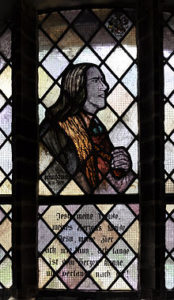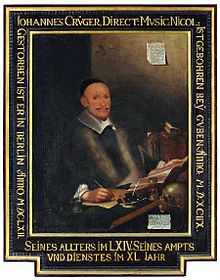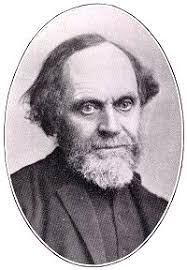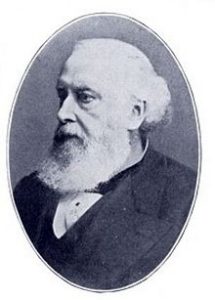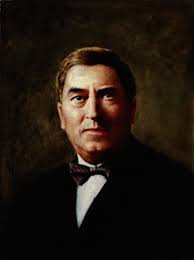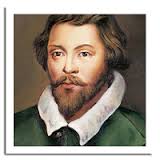Mount Calvary Church
Eutaw Street and Madison Avenue
Baltimore, Maryland
A Parish of the Roman Catholic Personal Ordinariate of St. Peter
Anglican Use
Rev. Albert Scharbach, Pastor
Maundy Thursday
March 28, 2018
7:00 PM Mass of the Lord’s Supper
Common
Missa Pange Lingua, Josquin de Prez
Hymns
Deck thyself, my soul, with gladness (SCHMÚCKE DICH)
And now, O Father, mindful of Thy love (UNDE ET MEMORES)
Now, my tongue, the mystery telling
Anthems
Ubi caritas, Maurice Durefle
Ave verum corpus, William Byrd
_______________________
Common
Missa Pange Lingua, Josquin de Prez
Josquin’s Missa Pange lingua is composed on material derived from the melody to which, from the 13th century onwards, Thomas of Aquinas’s adaptation of a hymn by Venantius Fortunatus may have been most frequently sung. If anything is fascinating in the composer’s setting of the Ordinary text, it is certainly the way in which he has conceived from this material a melodic framework in which the declamation of the text remains crystal-clear. In those sections with much text, the opening of a phrase is sung to a minimum of notes, which strictly follows the declamation of the text. Through this approach, in imitation in all voices, these clear-cut melodies clearly affirm what has just been stated. In general, melodic continuation either follows the principle of one note to one syllable, or, within this stream, slightly emphasizes a particular word by a few extra notes, which may stress its particular meaning. Towards cadences between two or more voices in imitation, the leading voice may approach the close of its line with a short improvisation on a foregoing melodic element, or by a subtle embellishment that not infrequently functions as exclamation sign. In those Ordinary movements with little text, the structure of melodic phrases in general leaves no doubt where repetition of text has been intended, particularly in the long-winded duos in the Sanctus. In these sections it is fascinating to rediscover the composer’s step-wise presentation of text.
Hymns
Deck thyself, my soul, with gladness
Deck thyself, my soul, with gladness. The original German text, Schmücke dich, o liebe Seele, was written by the German politician and poet Johann Franck (1618—1677) in the aftermath of the Thirty Years’ War. It expresses an intimate relationship between the individual believer and his Savior, Jesus Christ. Jesus, ascended into heaven, is still present as our food in this “wondrous banquet.” He is the fount, from whom our being flows as we receive Him and are filled with Him. He feeds us and transforms us into His likeness so that we become His joy and boast and glory before the heavenly court.
Deck thyself, my soul, with gladness,
leave the gloomy haunts of sadness;
come into the daylight’s splendour,
there with joy thy praises render
unto him whose grace unbounded
hath this wondrous banquet founded:
high o’er all the heavens he reigneth,
yet to dwell with thee he deigneth.Sun, who all my life dost brighten,
light, who dost my soul enlighten,
joy, the sweetest heart e’er knoweth,
fount, whence all my being floweth,
at thy feet I cry, my Maker,
let me be a fit partaker
of this blessed food from heaven,
for our good, thy glory, given.Jesus, Bread of Life, I pray thee,
let me gladly here obey thee;
never to my hurt invited,
be thy love with love requited:
from this banquet let me measure,
Lord, how vast and deep its treasure;
through the gifts thou here dost give me,
as thy guest in heaven receive me.
Here is the Schola Cantorum of St. Peters-in-the-Loop singing the hymn. Here is the Hastings Choir.
Here is the 1674 text.
1. Schmücke dich, o liebe Seele!
Laß die dunckle Sünden Höle!
Komm ans helle Licht gegangen;
Fange herrlich an zu prangen.
Denn der Herr voll Heyl und Gnaden,
Wil dich itzt zu Gaste laden,
Der den Himmel kan verwalten,
Wil itzt Herberg’ in dir halten.2. Eile, wie Verlobten pflegen,
Deinem Bräutigam entgegen,
Der da mit dem Gnaden-Hammer
Klopfft an deine Hertzens-Kammer.
Oeffn’ ihm bald die Geistes-Pforten:
Red ihn an mit schönen Worten:
Komm, mein Liebster, laß dich küssen!
Laß mich deiner nicht mehr missen.3. Zwar in Kauffung theurer Wahren
Pflegt man sonst kein Geld zu sparen:
Aber du wilt für die Gaben
Deiner Huld kein Geld nicht haben:
Weil in allen Bergwercks-Gründen
Kein solch Kleinod ist zu finden,
Daß die Blut-gefüllte Schaalen
Und dis Manna kan bezahlen.4. Ach! wie hungert mein Gemüthe,
Menschen-Freund, nach deiner Güte!
Ach! wie pfleg’ ich offt, mit Thränen,
Mich nach de iner Kost zu sehnen!
Ach! wie pfleget mich zu dürsten,
Nach dem Tranck des Lebens-Fürsten!
Wünsche stets daß mein Gebeine
Sich durch Gott mit Gott vereine.5. Beydes Lachen und auch Zittern
Lässet sich in mir itzt wittern:
Das Geheinmiß dieser Speise,
Und die unerforschte Weise,
Machet daß ich früh vermercke,
Herr, die Grösse deiner Stärcke!
Ist auch wohl ein Mensch zu finden
Der dein’ Allmacht solt ergründen?6. Nein! Vernunfft die muß hier weichen,
Kan dieß Wunder nicht erreichen:
Daß diß Brodt nie wird verzehret,
Ob es gleich viel tausend nehret;
Und daß mit dem Safft der Reben
Uns wird Christi Blut gegeben.
O der grossen Heimligkeiten
Die nur Gottes Geist kan deuten!7. Jesu, meine Lebens-Sonne!
Jesu, meine Freud’ und Wonne!
Jesu, du mein gantz Beginnen,
Lebens-Quell und Licht der Sinnen!
Hier fall ich zu deinen Füssen!
Laß mich würdiglich gemessen
Dieser deiner Himmels-Speise,
Mir zum Heyl, und dir zum Preise!8. Herr, es hat dein treues Lieben
Dich vom Himmel abgetrieben,
Daß du willig hast dein Leben
In den Tod für uns gegeben,
Und darzu gantz unverdrossen,
Herr, dein Blut für uns vergossen,
Das uns itzt kan kräfftig träncken,
Deiner Liebe zu gedencken!9. Jesu wahres Brodt des Lebens!
Hilff, daß ich doch nicht vergebens,
Oder mir vielleicht zum Schaden
Sey zu deinem Tisch geladen!
Laß mich durch diß Seelen-Essen
Deine Liebe recht ermessen,
Daß ich auch, wie itzt auf Erden,
Mag dein Gast im Himmel.
The erotic imagery in the German was eliminated by Catherine Winkworth when she translated the hymn for her Lyra Germanica.
The original 1674 German text was written by
Johann Franck
Johann Franck (1618-1677) a was German poet, lawyer and public official. After his father’s death in 1620, Franck’s uncle by marriage, the town judge, Adam Tielckau, adopted him and sent him to schools in Guben, Cottbus, Stettin, and Thorn. On June 28, 1638, he enrolled at the University of Königsberg to study jurisprudence. This was the only German university left undisturbed by the Thirty Years’ War. Here his religious spirit, his love of nature, and his friendship with such men as the his poetic mentor, Simon Dach and Heinrich Held, preserved him from sharing in the excesses of his fellow students.
Johann Franck returned to Guben at Easter 1640, at his mother’s urgent request; she wished to have him near her in those times of war when Guben frequently suffered from the presence of both Swedish and Saxon troops. After his return from Prague, in May 1645, Franck embarked on a distinguished civic career as attorney, city councillor (1648) and Burgermeister (Mayor) (1661), and in 1671 (or 1670) was appointed as county elder of Guben in the margravate (Landtag – Diet)) of Lower Lusatia.
Johann Franck wrote both secular and religious poetry and published his first work, Hundertönige Vaterunsersharfe, at Guben in 1646. Almost his entire output is brought together in the two-volume Teutsche Gedichte. The first part, Geistliches Sion (Guben, 1672), contains 110 religious songs, provided with some 80 melodies. Bach composed 14 settings of seven of his texts, the most famous being the motet Jesu, meine Freude BWV 227.
Johann Crüger
The chorale melody associated with this text was composed by the German Lutheran theologian and musician, Johann Crüger (1598-1662). After passing through the schools at Guben, Sorau and Breslau, the Jesuit College at Olmütz, and the Poets’ school at Regensburg, he made a tour in Austria, and, in 1615, settled at Berlin. There, save for a short residence at the University of Wittenberg, in 1620, he employed himself as a private tutor till 1622. In 1622 he was appointed Cantor of St. Nicholas’s Church at Berlin, and also one of the masters of the Greyfriars Gymnasium. He died at Berlin Feb. 23, 1662. Crüger wrote no hymns, although in some American hymnals he appears as “Johann Krüger, 1610,” as the author of the supposed original of C. Wesley’s “Hearts of stone relent, relent”. He was one of the most distinguished musicians of his time. Of his hymn tunes, some 20 are still in use, the best known probably being that to “Nun danket alle Gott”, which is set to No. 379 in Hymns Ancient & Modern.
_____________________________________
And now, O Father, mindful of Thy love
And now, O Father, mindful of the love was composed by Anglican High Churchman William Bright (1824—1901), He was Regius Professor of Ecclesiastical History at Oxford, and then worked in Scotland, where his views on the Reformation caused him to be ejected by the Bishop of Glasgow. He then returned to Oxford.
1 And now, O Father, mindful of the love
that bought us, once for all, on Calvary’s tree,
and having with us him that pleads above,
we here present, we here spread forth to thee
that only offering perfect in thine eyes,
the one true, pure, immortal sacrifice.2 Look, Father, look on his anointed face,
and only look on us as found in him;
look not on our misusings of thy grace,
our prayer so languid, and our faith so dim:
for lo, between our sins and their reward
we set the Passion of thy Son our Lord.3 And then for those, our dearest and our best,
by this prevailing presence we appeal:
O fold them closer to thy mercy’s breast,
O do thine utmost for their souls’ true weal;
from tainting mischief keep them white and clear,
and crown thy gifts with strength to persevere.4 And so we come: O draw us to thy feet,
most patient Saviour, who canst love us still;
and by this food, so aweful and so sweet,
deliver us from every touch of ill:
in thine own service make us glad and free,
and grant us never more to part with thee.
Here is the Choir of Marlborough College.
The text was inspired by the Latin Canon that begins Te Igitur, clementissime Pater:
And now, Lord, we Thy servants, and with us Thy holy people, calling to mind the blessed Passion of the same Christ, Thy Son, our Lord, and also His Resurrection from the grave and His glorious Ascension into heaven, offer to Thy excellent majesty, of Thy gifts and presents, a pure Victim, a holy Victim, a spotless Victim, the holy Bread of eternal life, and the Chalice of everlasting salvation.William Bright
William Bright D.D. (1824-1901) was educated at Rugby School and University College, Oxford (BA, 1846, MA, 1849). He was elected to a Fellowship of the College in 1847, and took Holy Orders (deacon 1848, priest 1850). He became a theological tutor at Trinity College, Glenalmond, Scotland, in 1851, and was appointed Bell Lecturer in Ecclesiastical History by the Scottish bishops. In 1858 he had a serious disagreement with the Bishop of Glasgow over the historical interpretation of an episode in the Reformation concerning church settlement. He was removed from office and so returned to Oxford, where he taught church history. He was appointed Professor of Ecclesiastical History and Canon of Christ Church in 1868.
William Henry Monk
The tune UNDE ET MEMORES was composed by William Henry Monk (1823-1889). It marks the rhythm very beautifully with a crochet on the third and seventh syllable of lines one and three, varied on the fifth syllable in lines two and four.
Monk (1823– 1889) was an English organist, church musician and music editor who composed popular hymn tunes, including one of the most famous, “Eventide”, used for the hymn “Abide with Me”. He also wrote music for church services and anthems. In 1847, Monk became choirmaster at King’s College London. There he developed an interest in incorporating plainchant into Anglican services, an idea suggested by William Dyce, a King’s College professor with whom Monk had much contact.
___________________________
Now, my tongue, the mystery telling
This is a translation of the Pange lingua, which was written by Thomas Aquinas (1224-1274) as the hymn for Vespers of the newly established feast of Corpus Christi. Aquinas had been invited in 1264 by Pope Urban IV to produce a liturgy for this festival, and this hymn belongs to that provision. It is patterned on the processional hymn Pange lingua, written by Venantius Fortunatus (530-600). The translation in the 1940 Hymnal is made up of various translations. The melody is taken from the Sarum liturgy.
For an analysis fo teh Pange lingua, see David Nussbaum’s Aquinas and the Aesthetics of Latin Poetry.
1 Now, my tongue, the mystery telling
of the glorious body sing,
and the blood, all price excelling,
which the Gentiles’ Lord and King,
in a Virgin’s womb once dwelling,
shed for this world’s ransoming.
2 Given for us, and condescending
to be born for us below,
he, with us in converse blending,
dwelt the seed of truth to sow,
till he closed with wondrous ending
his most patient life of woe.
3 That last night, at supper lying,
‘mid the Twelve, his chosen band,
Jesus, with the law complying,
keeps the feast its rites demand;
then, more precious food supplying,
gives himself with his own hand.
4 Word-made-flesh, true bread he maketh
by his word his flesh to be,
wine his blood; which whoso taketh
must from carnal thoughts be free:
faith alone, though sight forsaketh,
shows true hearts the mystery.
5 Therefore we, before him bending,
this great sacrament revere:
types and shadows have their ending,
for the newer rite is here;
faith, our outward sense befriending,
makes our inward vision clear.
6 Glory let us give and blessing
to the Father and the Son,
honour, might, and praise addressing,
while eternal ages run;
ever too his love confessing,
who, from both, with both is One. Amen.
Here is Pange lingua with the Gregorian melody.
Pange, lingua, gloriósi
Córporis mystérium,
Sanguinísque pretiósi,
Quem in mundi prétium
Fructus ventris generósi
Rex effúdit géntium.
Nobis datus, nobis natus
Ex intácta Vírgine,
Et in mundo conversátus,
Sparso verbi sémine,
Sui moras incolátus
Miro clausit órdine.
In suprémæ nocte coenæ
Recúmbens cum frátribus
Observáta lege plene
Cibis in legálibus,
Cibum turbæ duodénæ
Se dat suis mánibus.
Verbum caro, panem verum
Verbo carnem éfficit:
Fitque sanguis Christi merum,
Et si sensus déficit,
Ad firmándum cor sincérum
Sola fides súfficit.
TANTUM ERGO SACRAMÉNTUM
Venerémur cérnui:
Et antíquum documéntum
Novo cedat rítui:
Præstet fides suppleméntum
Sénsuum deféctui.
Genitóri, Genitóque
Laus et jubilátio,
Salus, honor, virtus quoque
Sit et benedíctio:
Procedénti ab utróque
Compar sit laudátio.
Amen. Alleluja.
_____________________________
Anthems
Ubi caritas, Maurice Durefle
Ubi caritas et amor, Deus ibi est.
Congregavit nos in unum Christi amor.
Exultemus, et in ipso iucundemur.
Timeamus, et amemus Deum vivum.
Et ex corde diligamus nos sincero. Amen.
Where charity and love are, God is there.
Christ’s love has gathered us into one.
Let us rejoice and be pleased in Him.
Let us fear, and let us love the living God.
And may we love each other
with a sincere heart. Amen.
Here is the King’s College Choir.
Maurice Duruflé (1902-1986) was an introspective and highly self-critical musician. As a result, he only published fourteen works in his lifetime. Ubi caritas, composed in 1960, is based on the Gregorian chant of the same name. The meditative text is set so that the freely flowing motion of the chant, first heard in the altos, is always at the forefront. It is primarily homophonic, with each voice moving together in hymn-like fashion.
_____________________
Ave verum corpus, William Byrd
Ave verum corpus natum ex Maria virgine, vere passum immolatum in cruce pro homine, cuius latus perforatum unda fluxit sanguine, esto nobis praegustatum mortis in examine. O dulcis, o pie, o Jesu, fili Mariae, miserere mei.
Hail, true Body, born of the Virgin Mary, who having truly suffered, was sacrificed on the cross for mankind, whose pierced side flowed with water and blood: May it be for us a foretaste [of the Heavenly banquet] in the trial of death. O sweet, O gentle, O Jesu, son of Mary, have mercy on me.
William Byrd (c. 1540-1623)
16th Century England, under the charge of Queen Elizabeth I, was officially Protestant; and although Byrd was famous in his day, he constantly lived in fear of losing commissions because of his Catholic faith. Because of this, many of Byrd’s earlier sacred works were smaller in scope, and included phrases and musical suspensions meant to secretly signify the desire for equal protection for Catholics in England. By 1605, under the rule of King James I, Byrd felt comfortable enough to compose his most overtly Catholic book, Gradualia. From this collection comes this “Ave Verum Corpus.”
Here are the Tallis Scholars
